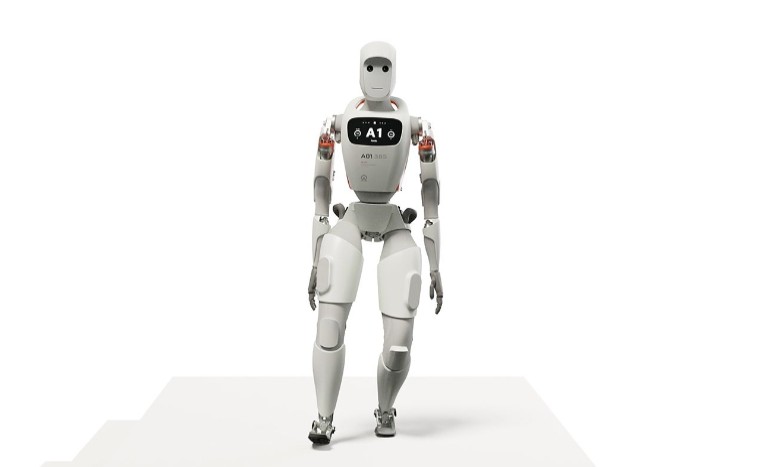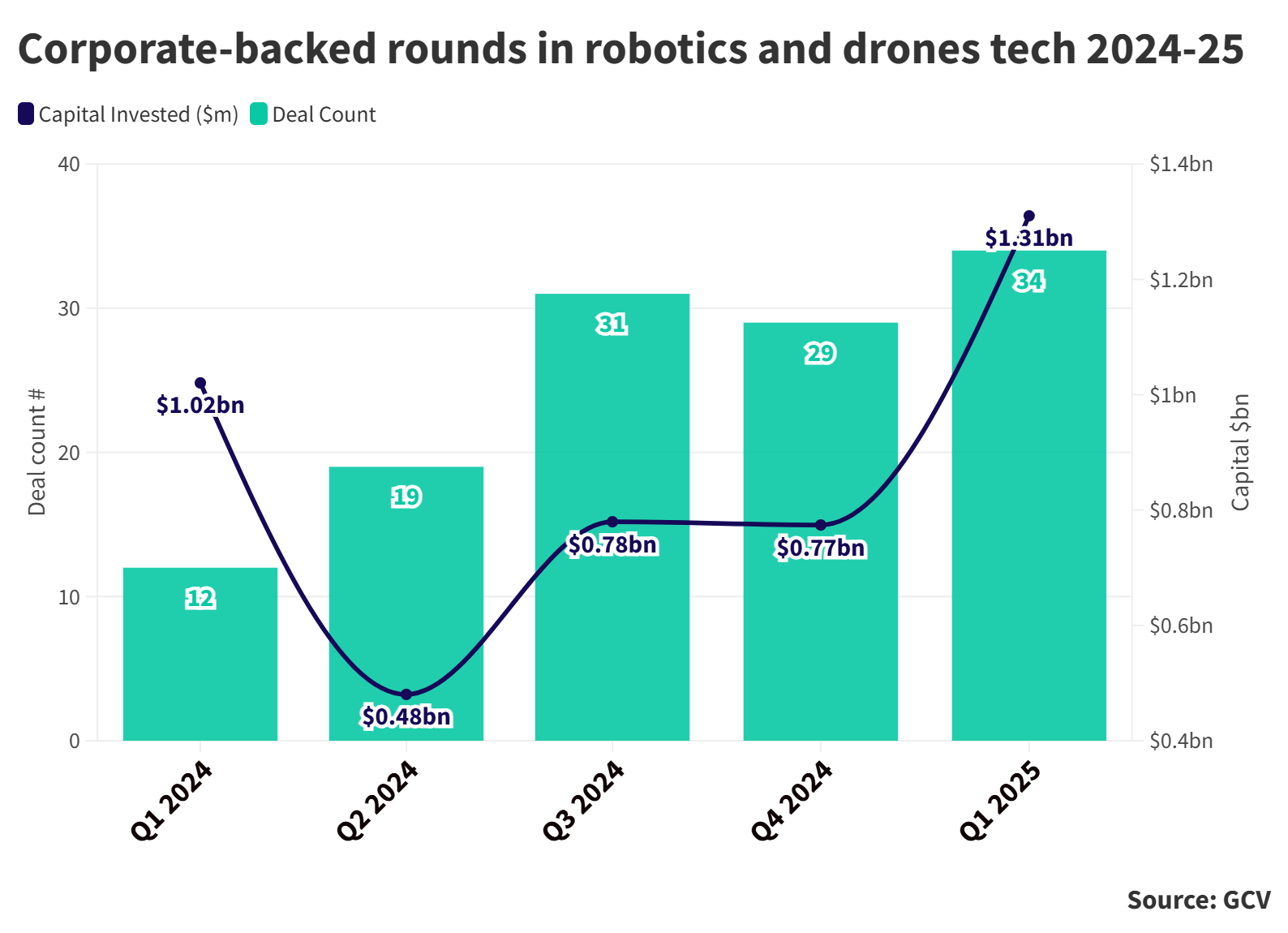Investments in robots and drones grew nearly three-fold in QI, as AI ushers in a new crop of AI-assisted robots that can learn and react like humans.

Financing rounds for robotics and drone startups have been one of the fastest-growing areas of corporate venturing in the past three months, with the number of CVC-backed rounds for such companies leaping 183% year-on-year in the first quarter.
Thirty-four deals, with a cumulative value of $1.3bn, were recorded in three months to the end of March compared with 12 the year before. This is the largest percentage change of any sub-sector that make up the industrial category.
Advances in artificial intelligence have led to a next generation of robots which can learn from their human counterparts and do tasks with higher precision than ever before. For corporate investors, humanoids are a natural fit for their portfolios. Many corporates — for example those who supply the automotive industry — are eyeing how they can manufacture parts for these robots, while others see opportunities for deploying the machines on their assembly lines or in their services.

Recent large humanoid robot investments include Alphabet-backed Apptronik, which raised $350m in February. In January, Germany’s Neura Robotics raised $124m and China’s Fourier raised $109m.
The rise of humanoid robotics is underpinned by investments by some of the largest tech companies. Nvidia, whose manufacture of graphics processing units has fuelled the rapid growth of artificial intelligence computing, is pouring resources into making AI-driven software for humanoid robots.
In March, Nvidia unveiled a foundation model that gives robots the capability to mimic human reflexes and intuition. The robots can grasp, move objects with one or both arms and transfer items from one arm to the other. Robots trained on the model can be used in materials handling, packaging and inspection.
The team at Zeon Ventures, the investment arm of Japanese chemicals manufacturer Zeon Corporation, sees opportunities for the parent to manufacture the soft, flexible materials that make robot hands operate with the agility of a human hand. “We are starting to get more interested in robotics and automation,” says Dennis Clark, investment director at Zeon Ventures.
“There are innovations happening around human-computer interaction and robots that can communicate more closely with humans and be more functional. How can we make them more dexterous and do more complicated things. Those are the areas that we are interested in as a materials company,” says Clark.
Zeon Ventures invested in Inkbit, a 3D printing technology that can make functioning robotic hands. The US startup raised $19m in May 2024 with a range of corporate investors joining Zeon Ventures in the round including Ingersoll Rand; GC Ventures America, a CVC of PTT Global Chemical; Ocado; and Stratasys.
Another corporate investor that sees opportunities in humanoid robot manufacturing is German industrial company Schaeffler, whose core business is automotive. The same types of bearings and actuators that go into cars can also be used for robots, says Niels Fehre, head of corporate investment management at Schaeffler.
In November, Schaeffler invested in US startup Agility Robotics. The investment team hopes the deal can help the company understand and gain access to the market.
“Looking at some market estimates and the speed and valuations in the market for humanoids, this is going to be a huge market soon,” said Fehre in a recent video interview with GCV.
The restaurant and fast-casual food service sector is another industry that is expected to use robots to save on labour costs. Automated robots are already used in restaurant chains such as Mom’s Touch, a South Korean fast food chain.
US-based startup Aniai makes robotic food preparation equipment such as machines that can grill hamburgers. The startup, which is raising a series A round, has deployed its grill machines at Korean fast food franchise Lotteria, part of the Lotte Group.
The wave of onshoring in the manufacturing sector is expected to speed the use of humanoid robots. The higher labour costs and lack of skilled workers in countries such as the US means onshored factories may have to turn to robots to do the work.
US-based startup E-Bots builds autonomous robotic systems that can perform light-load assembly tasks in the electronics sector for devices such as smart phones, tablets, PCs and electronic instruments.
“US manufacturing is coming back but it is hard to find the workforce. The labour costs are 400% more expensive than in developing countries,” said Zheng Xu, founder and CEO of E-Bots, during a startup pitch event at the GCVI Summit in Monterey last month. “We have robots that are in mass production for high-end consumer electronics.”









